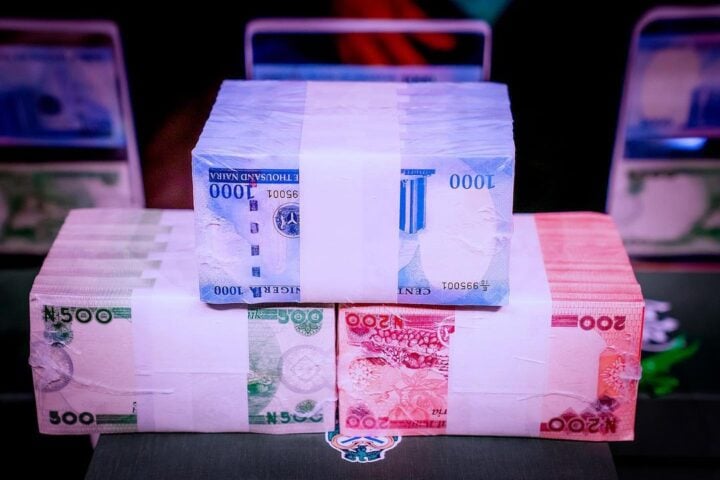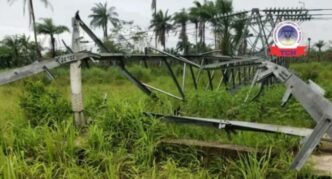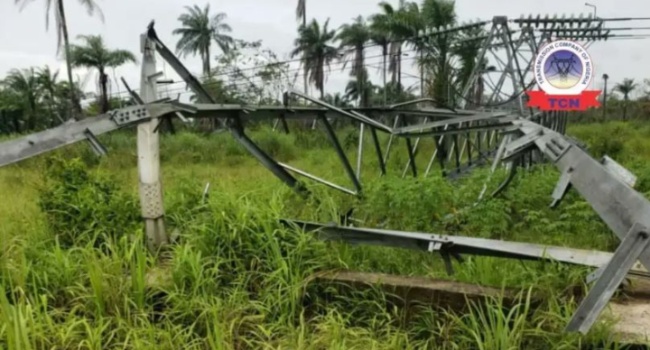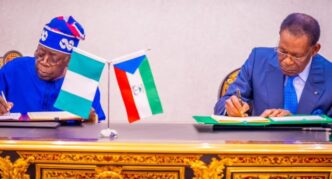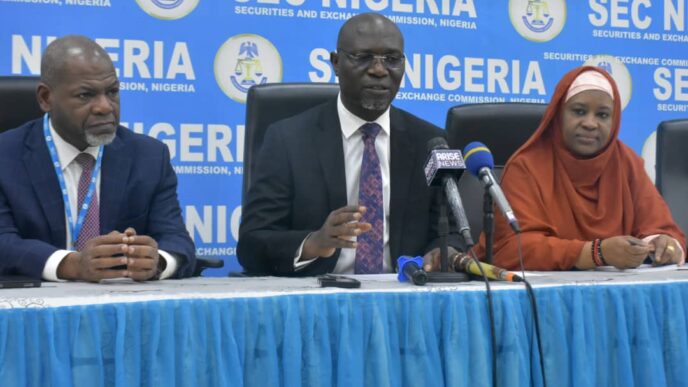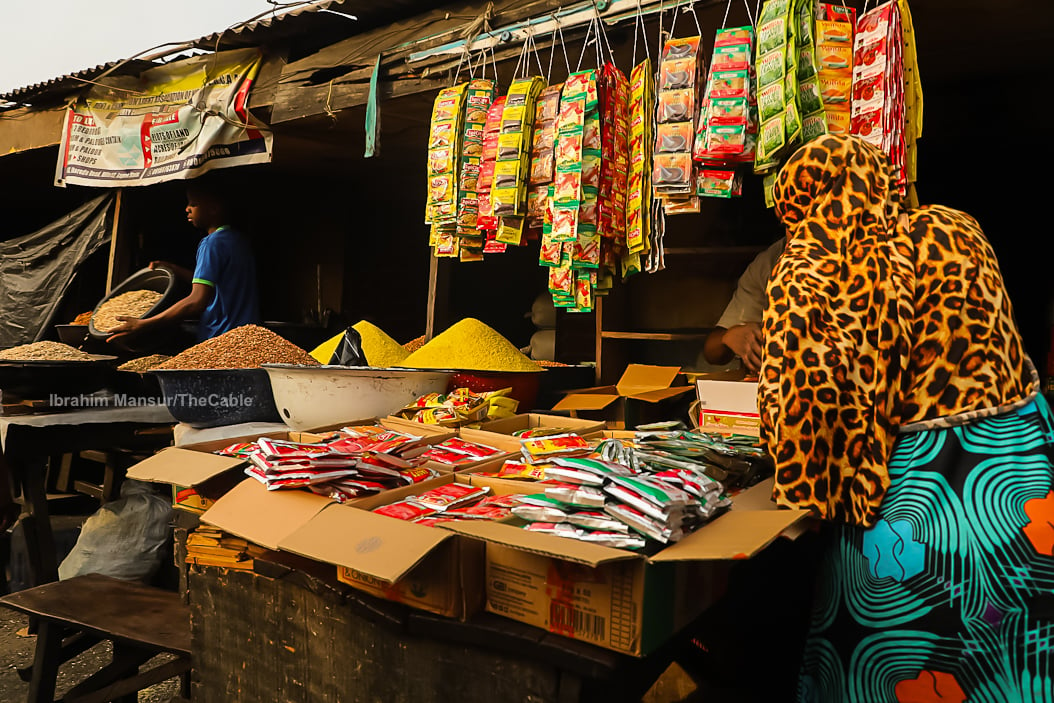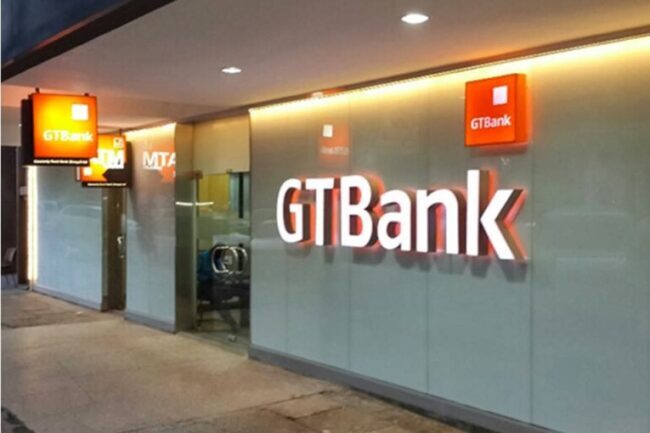The Manufacturers Association of Nigeria (MAN) has raised concerns about the average maximum lending rate of 35 percent charged by commercial banks on loans to its members in the second quarter (Q2) of 2024.
MAN said the lending rate increased by 6.4 percent in Q2 – up from a 28.6 percent interest rate in Q1.
The association reported the increase in its Q2 ’24 MAN CEO’s Confidence Index (MCCI),’ titled ‘MAN Position on the Incessant Increase in Interest Rate’.
The index aggregates the views of 400 CEOs of manufacturing companies across the six geopolitical zones on changes in the economy such as business and employment conditions, production levels, and operating environment.
Advertisement
The report showed that the aggregate index score of the manufacturing sector decreased from 53.5 points in Q1 to 51.9 points in Q2.
According to the report, the lending rate to manufacturers during the period under review for Zenith Bank was 30 percent on average, while Access Bank and the United Bank for Africa (UBA) offered 32 percent.
First Bank of Nigeria (FBN) and Ecobank, according to MAN, lend at an interest rate of 35 percent.
Advertisement
“The continuous hikes in MPR have tightened financial conditions for the productive sector, with the average maximum lending rate charged by commercial banks on manufacturers’ finances rising to 35 percent in Q2 2024 from 28.6 percent in Q1 2024,” the association said.
“This has not only increased the cost of goods but has also further compounded the inflationary problem and threatened employment in the sector.”
MAN also blamed the ‘erroneous disposition’ of the monetary policy committee (MPC) of the Central Bank of Nigeria (CBN) to fight inflation with continual hiking of the monetary policy rate (MPR), which is the benchmark for banks’ interest rates.
At the last MPC meeting, the committee increased the interest rate by 50 basis points from 26.25 percent to 26.75 percent.
Advertisement
“As the CBN continues to hold the erroneous belief that inflation in Nigeria is primarily money-induced, it has persistently increased interest rates in an attempt to curb the escalating inflationary pressure, which reached a 28-year high of 34.19 percent in June,” MAN said.
“The MPC’s decision to further hike the MPR by 50 basis points in its July meeting brings the total increase to 1,525 basis points since May 2022, when the committee began its aggressive rate hikes.
“Unfortunately, inflation has continued to defy the antidote of increased interest rates, as the inflationary problem in the country is largely driven by supply-side deficiencies and other structural bottlenecks.”
The manufacturers added that before the recent increase in the MPR, available data revealed that none of the five top banks charged a maximum lending rate below 30 percent.
Advertisement
MAN also warned that the MPC’s decision would further “escalate the cost of borrowing, limit access to credit, and discourage investment in the manufacturing sector.”
The association, therefore, expressed concern that the capacity of the manufacturing sector to play its strategic role of stimulating economic growth has been further constrained by the increase in interest rates.
Advertisement
“The new rate will further limit the growth of the manufacturing sector, as the purchasing power of consumers, production levels, competitiveness, and sales will further decline beyond measure,” MAN said.
“Specifically, the recent increase in the cost of borrowing will escalate production costs, prices of finished goods, unemployment, and social instability and lead to the closure of more manufacturing concerns and constrain the capacity of the sector to compete effectively in global and regional markets.”
Advertisement
‘NAIRA DEVALUATION DOUBLED EXPORTS COST’
MAN said while the devaluation of the naira has more than doubled the value of manufactured exports from N131.15 billion in Q1 of last year to N268.7 billion in Q1 of 2024, the share of manufacturing in non-oil exports has consistently declined from 30.2 percent in Q2 2023 to 15.1 percent in Q1 of 2024 – below the recorded share of 19.8 percent in Q1 2023.
Advertisement
“This reveals the waning competitiveness of Nigerian manufactured exports in the global market. This is occasioned by the high cost of doing business, especially the rising cost of borrowing for manufacturing investment,” MAN said.
“It is also noteworthy to acknowledge the critical link between domestic investor confidence and foreign investor sentiment.
“As increasing interest rate contributes to low domestic investor confidence, foreign direct investment in the sector had also declined $191.92 million in the Qpercentrking a significant drop ofpercentcent quarter-on-quarter and 57 percent year-on-year. It was $256.12 million in Q1’23”.
The association, therefore, said it was expedient that the CBN prioritise the survival of manufacturing in making monetary policy decisions.
“This would enable the sector to effectively play its role as the key driver of employment creation, productivity, stable foreign exchange earnings, and sustained economic growth,” the association added.
MAN urged CBN to be domestic production-centric by taking a detour from a continuous hike in MPR and allow time for the real sector to recover from the impact of previous hikes.
